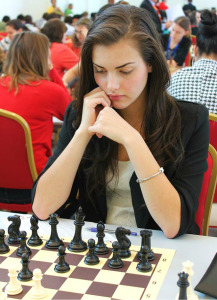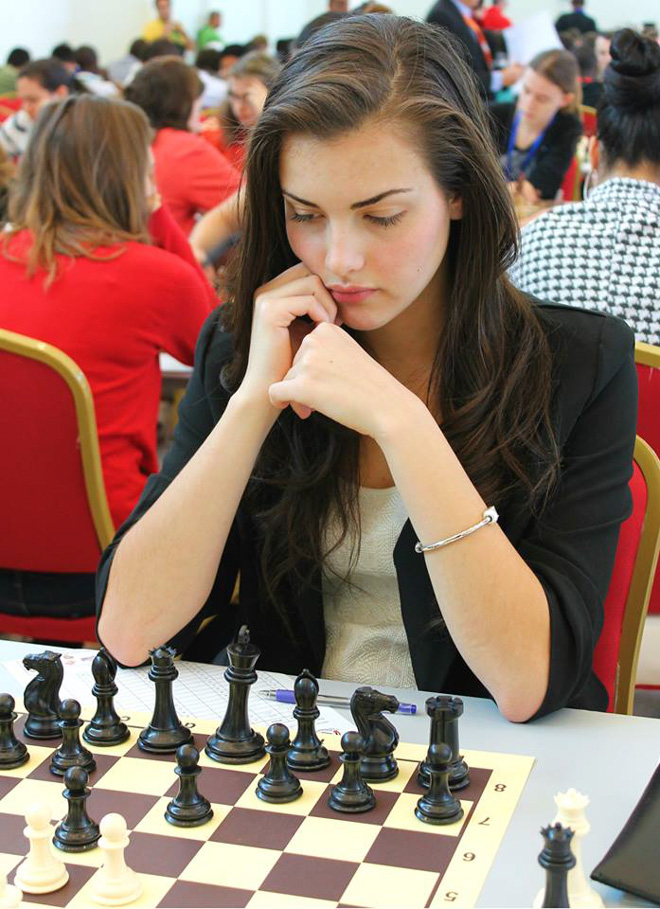
(YELIZAVETA ORLOVA/The Stanford Daily)
For Alexandra Botez ’17, chess has been an important part of life for many years. She’s been playing the game since she was only 6. Botez grew up in Canada and played for the National Canadian Team. She was a five-time National Girls Champion in Canada, won the U.S. Girls Nationals when she was 15, and eventually earned full scholarship to the University of Texas, Dallas, for chess.
After considering focusing on Chess in college, she decided to put other academics and aspects of her life first. She came to Stanford as opposed to a Chess school.
“I decided chess wasn’t something I wanted to do a lot more of, I was always more interested in school and other academic subjects,” she said. “I felt like I would grow a lot more as a person if I came to Stanford.”
But with her history playing the game, getting involved in the Stanford Chess Club was a natural choice.
“It’s a very casual atmosphere at Stanford,” Botez said. “We do it more for fun here than if you go to a chess scholarship school where you’re expected to attend coaching, tournaments and put in a big time commitment.”
She doesn’t want her role as the club’s first female president to be considered too seriously.
“There is already a lot of sexism in the competitive chess world, so I don’t want it to be anything significant just because a girl is president of the Chess Club,” she said.
She still has an interest in teaching and volunteering, which she does on weekends and sometimes online.
“There’s only so much you can do with chess that will really have a positive impact on anyone other than yourself,” she said.
But she strives to provide this impact wherever possible, especially in underserved communities. Learning chess at a young age can be a very beneficial learning opportunity for kids, Botez said, which makes her care more about the game.
“It doesn’t matter what their social or economic background is–it’s very cheap to play, and you can get good just by practicing,” she said. “Kids from rural areas can play kids from private schools. It develops confidence and the ability to work with logic.”
When asked what lessons chess has taught her, Botez was hesitant to credit the game for all of her life skills, citing any extracurricular that inspires passion as key to development in high school.
“They all require you to make sacrifices and be committed even when things aren’t going so well,” she said.
Botez attended high school in Oregon and is now a sophomore studying International Relations. This also has to do with chess, she said, because she had to travel a lot for tournaments, made a lot of friends abroad, and was able to discover a lot about other places and cultures.
She says her longest chess game was approximately six and a half hours. The average game in competitive tournaments is at least four hours long, Botez said.
“The time goes by because you’re caught up in the game.”
Contact Katie Kramon at ckramon ‘at’ stanford.edu.
